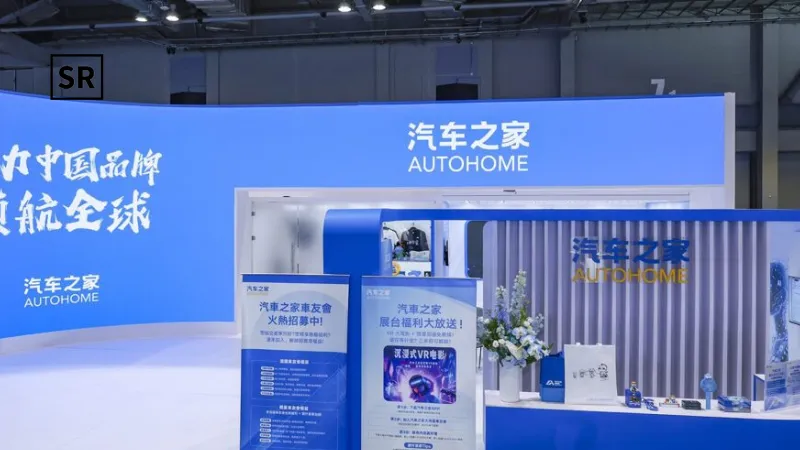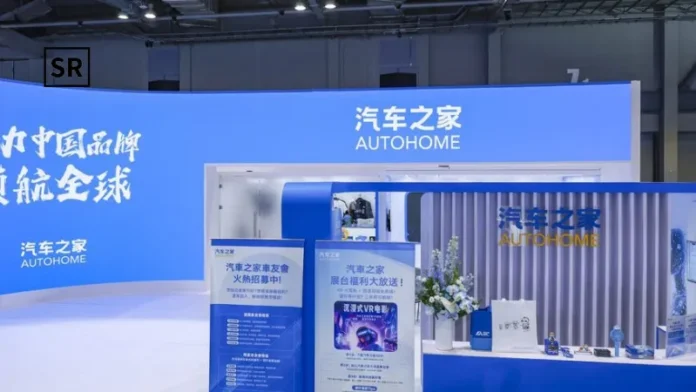
Artificial intelligence (AI) is changing how cars are sold, and Autohome is one of the companies leading this shift. This was clear during the 2025 International Automotive and Supply Chain Expo, held from June 12 to 15 at AsiaWorld-Expo in Hong Kong.
Autohome took part in the event along with many other companies from mainland China. These companies represented different areas of the auto industry, such as car manufacturing, parts, smart car interiors, self-driving technology, and electric vehicles. Big car brands like BYD, Geely, Chery, SAIC Motor, and Xpeng Motors were there. Tech and supply chain firms like CATL, Momenta, Horizon Robotics, and Baidu’s Apollo also joined.
AI is transforming the way people buy cars.
At the expo, Autohome showed off new AI tools that make it easier for people to search for and buy cars. The main highlight was its virtual sales assistant, called Jiajia. This smart assistant helps users choose the right car, compare features using 3D images, read user reviews, and explore financing options—just like a real, experienced car salesperson. Many visitors at the event were impressed by it.
Jiajia runs on Autohome’s own Cangjie language model and uses data collected over the last 20 years. This includes details about car parts, specs, user opinions, and expert reviews. Jiajia is already available on the Autohome app and at Autohome Space locations across China. CEO Yang Song says it’s the most accurate and complete AI tool available today for answering car-related questions.
To grow its AI technology, Autohome uses its Space showrooms as experience centers. During test drives, these locations collect real-time driving data to check how well self-driving features are working. They track things like speed, smooth braking, stable steering, and how often the car needs help from the driver. After the test drive, users get a detailed report comparing their results, and Autohome uses this information to improve its services and support.
Autohome also plans to open its first international Space showroom in Hong Kong but hasn’t announced the opening date yet.
At the same time, Autohome has launched a test-drive comparison tool that looks at how people drive and gives them a performance report. According to CEO Yang, these tools are meant to make the car buying process more clear and reliable instead of depending on guesses or personal opinions.
Autohome is also trying out new ways to improve the car shopping experience. At the expo, it introduced a virtual reality (VR) cinema that takes visitors on a journey through over 100 years of car history—from early electric cars in the 1800s to the latest future technologies.
The company said this fun and educational experience will be added to future Space showrooms to help visitors learn more about cars engagingly and interactively.
Autohome has also been working behind the scenes to create AI tools for businesses in the car industry. These tools include a marketing dashboard to help improve sales plans, a content tool that creates posts and ads to attract customers, and a used car price estimator to predict resale values.
Together, these tools show that Autohome is expanding from just a car-buying website to becoming a full tech partner for the entire automotive industry.

From a content platform to a full-service automotive ecosystem provider
Autohome’s tech efforts also support its bigger goal of helping Chinese car brands expand to other countries. On June 30, the company will launch an English-language website that shows Chinese car models ready for export. The site will include details like car features, prices, and dealer links (if available).
CEO Yang said this new site is meant to help international buyers who don’t know much about Chinese cars. At the expo, he explained that this is part of a bigger plan to build the tools and services—both online and offline—needed to support Chinese car companies as they grow worldwide.
Looking ahead, Autohome intends to enter markets across Southeast Asia, Latin America, the Middle East, and Europe. It aims to support automakers not only with sales and marketing but also with logistics, spare parts, and after-sales services. “Selling a car is only the beginning,” Yang said. “The real challenge lies in spare parts, maintenance, and market-level scale.”
A team effort for the whole ecosystem
China’s car industry is changing its approach. Instead of just selling cars to other countries, companies are now focusing on offering a complete package, including logistics, services, and full support throughout the car’s life. Yang said this means moving from just exporting products to exporting entire industries and that success will need careful planning and teamwork between countries.
Autohome is following this trend, too. It used to be primarily a website for car information, but now it provides many tools for car makers, dealers, and used car sellers. Its AI technology helps these partners save money and work more efficiently in different areas.
China is becoming a major player in the global car industry. In 2024, it became the world’s biggest car exporter, sending out 6.41 million cars—a 23% increase from the year before. Yang also said China makes over 60% of the world’s electric vehicle (EV) batteries and owns 43% of the patents for self-driving car technology. He says these achievements come from many years of investment and improving supply chains.
Yang believes this success isn’t from sudden breakthroughs but from years of hard work by engineers and business leaders across the whole industry. He said, “This isn’t a sprint by one car company. It’s a relay race for the entire industry.” Autohome hopes its platform can help by passing the baton in this race.
Read more- InCred Money set to acquire discount broker Stocko





